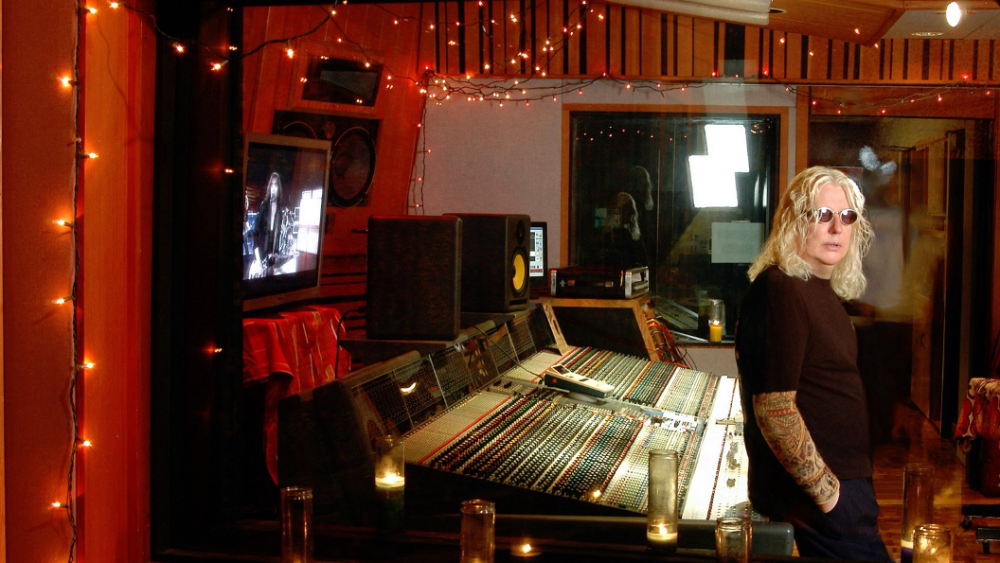Roy Thomas Baker, whose intricate work on multiple albums by Queen — including “Bohemian Rhapsody” — the Cars, Foreigner and others made him one of the most successful and influential producers of the 1970s and ‘80s, has died. No cause of death was announced; he was 78.
“Bohemian Rhapsody,” from Queen’s 1975 album “A Night at the Opera,” is currently the most streamed song to have been recorded in the 20th century and was named by the Guinness Book of Records as the top British single of all time.
Queen’s Roger Taylor noted of Baker, “I think he brought a certain amount of discipline and a lot of cynicism and a passion for fattening desserts. He liked his food, Roy. He was very disciplined and very strict in the beginning . . . he would always get it right. The take had to be right.”
Born in Hampstead, London, Baker began his career in music at Decca Studios in London where he served as second engineer to such major producers as Gus Dudgeon (Elton John) and Tony Visconti (David Bowie, T. Rex). He worked on recordings by those artists (under the name Roy Baker) as well as the Rolling Stones, the Who, Dusty Springfield, Ten Years After, Dr. John, Ginger Baker’s Air Force, Savoy Brown, Moody Blues, Nazareth, Yes, Be Bop Deluxe, and many more. By 1971, he had become chief engineer and worked on such hits as Free’s 1970 smash “All Right Now” and T. Rex’s “Bang A Gong (Get It On).” He later moved over to Trident Studios in London’s Soho district, where he began working closely with Queen.
While his role on the band’s 1973 debut was less prominent, beginning with the following year’s “Queen II” the band’s sound became increasingly elaborate and ambitious, involving dozens of layered vocals and multitracks instruments, particularly Brian May’s guitars. Their work grew increasingly complex through 1974’s “Sheer Heart Attack” and arguably peaking creatively with “A Night at the Opera,” which broke the band internationally (and was also said to be the most expensive album ever recorded at the time). He continued with the band’s equally elaborate but less successful 1976 album “A Day at the Races,” after which Queen began producing their own records.
By that point, however, Baker had been enlisted to work with the Boston-based band the Cars, who, like Queen, were signed with Elektra Records in the U.S. He brought his disciplined and vocal-heavy approach to that group’s self-titled debut, which became an instant hit, via singles like “Just What I Needed” and “Best Friend’s Girl,” and launched the Cars as a major band. He continued working with them on their next three albums, all of which were gold or platinum successes, although his trademark stacked vocals were less prominent.
“Roy taught me a lot about handling band personalities,” the Cars’ late singer-songwriter Ric Ocasek told writer A.D. Amorosi in 2016. “He was an electronics whiz, a sound guy with a classical background for mic-ing the room’s sound. He got harmony. And he took things in stride — a very upbeat, elegant man. Spontaneous, too.”
Around this time Baker relocated to the U.S. and in the following years produced albums by Journey, Ian Hunter, Ronnie Wood and Reggie Knighton (for his own RTB Audio Visual Productions). He was also a staff producer and A&R for Elektra, working with Lindsey Buckingham, Dokken, Mötley Crüe and Joe Lynn Turner. He also oversaw the signing of Metallica, Simply Red, Yello, Peter Schilling and 10,000 Maniacs.
Over the course of his career, he also produced Foreigner, Alice Cooper, Cheap Trick, Devo, Ozzy Osbourne, Sammy Hager, The Stranglers, Guns N’ Roses and Smashing Pumpkins.
Baker is survived by his wife, Tere Livrano Baker, and brother Alan Baker.
Read the full article here


